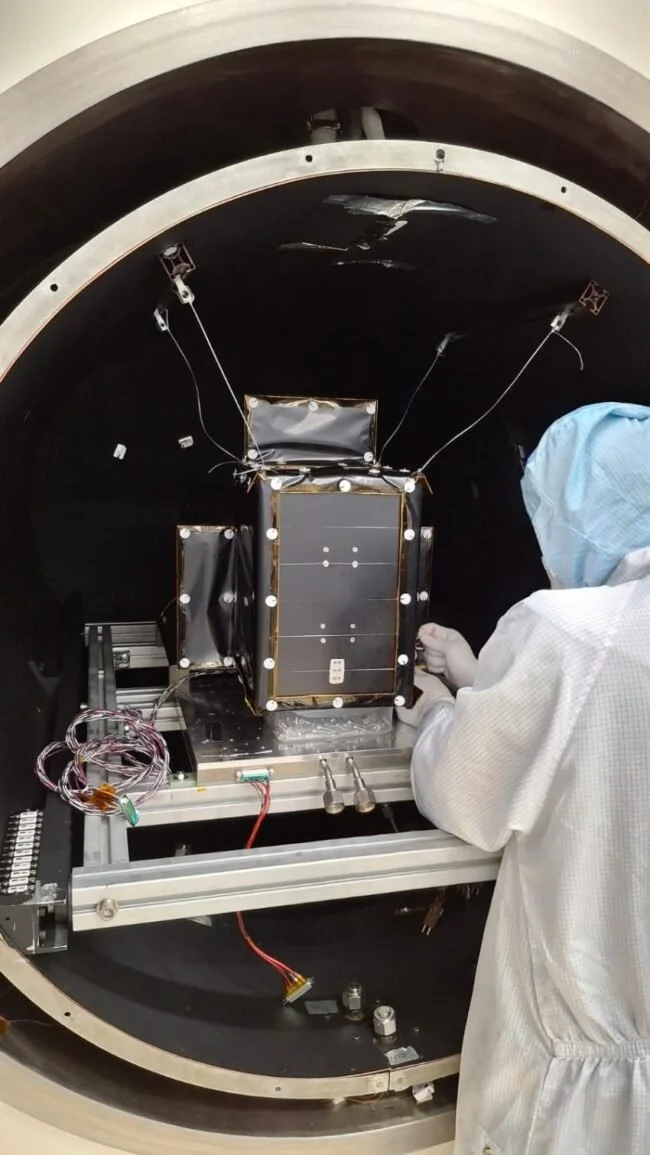
CosmoCube Advances Through UKSA Science Bilateral Programme with Key Tests at RAL Space
As part of the UK Space Agency’s Science Bilateral Programme, the CosmoCube consortium has been progressing mission development through a series of critical technical studies and tests. One highlight of this phase was the successful completion of Thermal Vacuum Chamber (TVAC) tests of the candidate platform at STFC RAL Space.
The TVAC campaign placed the spacecraft platform in a simulated space environment, exposing it to the extreme thermal and vacuum conditions expected in lunar orbit. These tests are a crucial milestone, validating the performance and resilience of the hardware before moving forward to more advanced stages of mission design.
This work underscores the value of the Science Bilateral Programme in enabling UK-led missions to collaborate with international partners, while strengthening national expertise in space science and engineering. Together, Cambridge, RAL Space, Portsmouth, and SSTL are building the foundation for CosmoCube’s success as a pathfinding cosmology mission in lunar orbit.
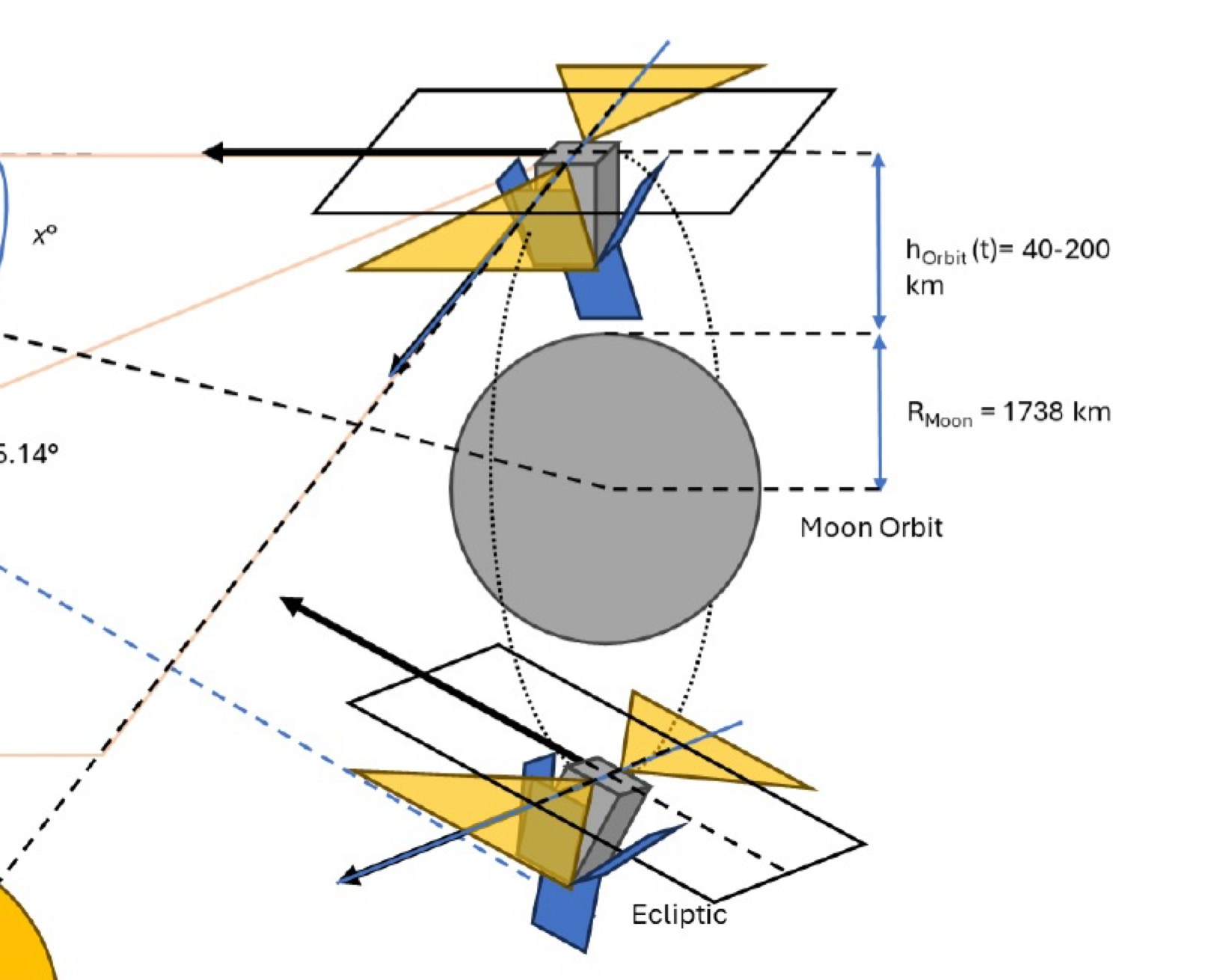
SSTL Begins Phase 0 Study for CosmoCube Mission
Surrey Satellite Technology Ltd (SSTL) has commenced a three-month Phase 0 study for the CosmoCube mission. The University of Cambridge is the grant holder under the UK Space Agency’s Space Science and Exploration Bilateral Programme.
The mission aims to operate in low lunar orbit (LLO), taking advantage of the far side of the Moon’s radio-quiet environment to observe the 21-cm hydrogen line over a redshift range of approximately 13 to 285. This will provide a continuous observational sweep of the Universe’s early baryonic content, from the “Dark Ages” through to the Cosmic Dawn (around 10 to 330 million years after the Big Bang).
As part of the study, SSTL will examine various non-CubeSat platform configurations for hosting the CosmoCube radio frequency payload. The goal is to refine cost estimates, development timelines (excluding the payload), and overall mission architecture. These findings will feed into proposals to the UK Space Agency’s Science Bilaterals programme, other UKSA initiatives, or potentially an ESA Mini-M class mission.
SSTL is working with a consortium that includes the University of Cambridge, the University of Portsmouth, and RAL Space.
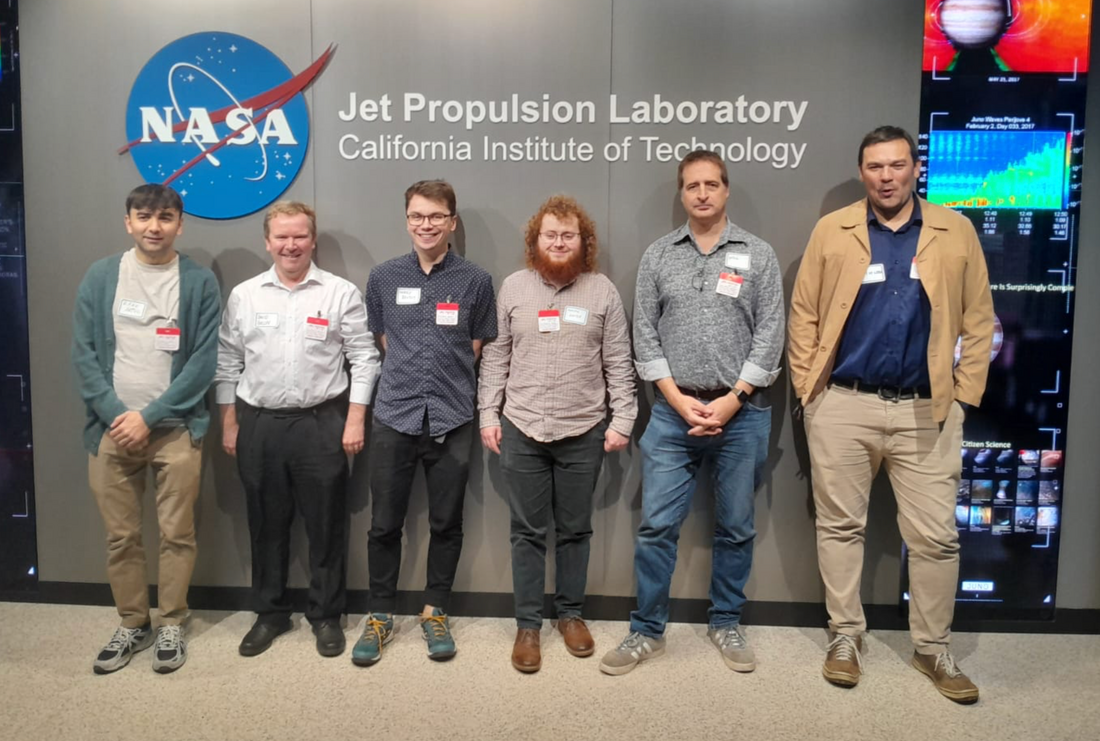
CosmoCube Team Visits NASA JPL for Mission Development Talks
A contingent of the CosmoCube consortium recently visited NASA’s Jet Propulsion Laboratory (JPL) in Pasadena, California. The visit provided an excellent opportunity to discuss the mission concept in detail and explore new avenues of collaboration with JPL colleagues.
During the meetings, the team exchanged expertise on mission design, calibration strategies, and operational planning, further strengthening the international partnership behind CosmoCube. The collaboration with JPL will play a key role in advancing the technical development of the mission as it progresses towards future phases.
This visit marks another important milestone for CosmoCube, highlighting the project’s growing global engagement and reinforcing its ambition to deliver groundbreaking science from lunar orbit.
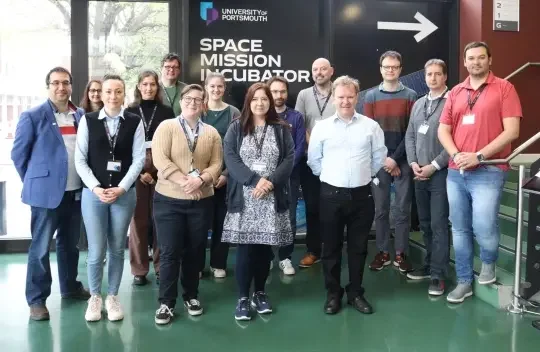
Pilot Study Rapidly Developing Mission Design for Moon-Orbiting Satellite
A pilot study conducted by the University of Portsmouth’s Space Mission Incubator has rapidly developed a mission design for a small satellite to orbit the Moon. The study supports the CosmoCube project, a cosmology mission that will collect radio waves to explore the “Dark Ages” of the Universe.
The project is led by the University of Cambridge, with strong contribution from Portsmouth. The study involved science and engineering experts working together in real-time using Portsmouth’s newly established concurrent design facility, modelled after NASA’s Jet Propulsion Laboratory’s approach.
Key outcomes included evaluations of lunar orbits that maximise shielding from Earth’s radio-frequency noise, assessments of required propulsion, and analyses of trade-offs in satellite design. Surrey Satellite Technology Ltd (SSTL), RAL Space, and other industry experts also supported the study, helping to strengthen the mission concept.
The results of this pilot will inform the next development steps for CosmoCube as the consortium refines cost estimates, mission architecture, and timeline.
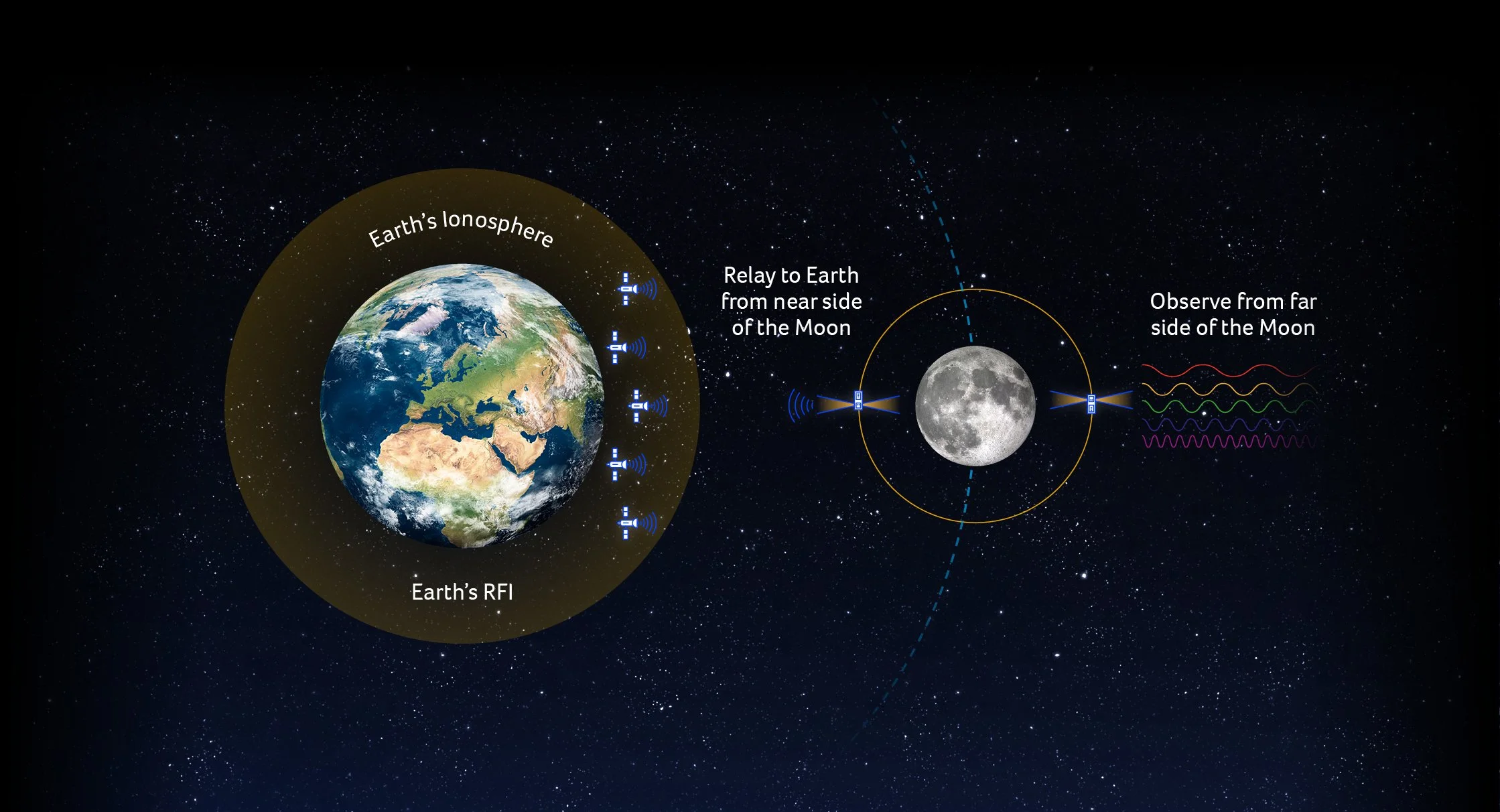
CosmoCube Receives 3-Month Study Funding via UKSA Bilateral Missions Call
In January 2023, the CosmoCube mission was awarded a short-term grant under the UK Space Agency’s Call for Bilateral Space Science and Exploration Missions (Category B) to support new mission studies over a period of three months.
This funding enabled the consortium — including Cambridge, RAL Space and Portsmouth — to carry out accelerated concept development work. The study period allowed for refining scientific goals, defining mission architecture, evaluating platform trade-offs, and undertaking preliminary cost and schedule planning.
This Category B grant provided the foundation for converting the CosmoCube concept into a full proposal, marking an important step towards establishing the mission as a leading UK-led space science initiative.
